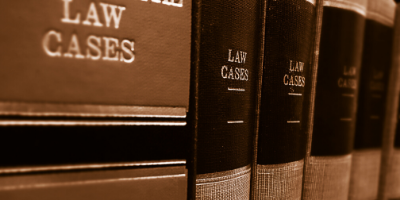Quarterly Journal 49-1
In This Section
The AIPLA Quarterly Journal, a publication of the American Intellectual Property Law Association, is housed at the George Washington University Law School and is edited and managed by an Editorial Board of intellectual property experts and a staff of law students under the direction of the Editor-in-Chief, Professor Joan Schaffner.
The Quarterly Journal is dedicated to presenting materials relating to intellectual property matters and is published four times per year. Editorial Board members (all of whom are lawyers) are selected based upon demonstrated interest and experience, and student staff members are selected from the students of the GWU Law School.
Thank you to our advertiser, Brand Murray Fuller, for their support in this edition.
 QJ 49.1 - THE VALUE OF STANDARD ESSENTIAL PATENTS AND THE LEVEL OF LICENSING
QJ 49.1 - THE VALUE OF STANDARD ESSENTIAL PATENTS AND THE LEVEL OF LICENSING
Bowman Heiden, Jorge Padilla, and Ruud Peters
THE VALUE OF STANDARD ESSENTIAL PATENTS AND THE LEVEL OF LICENSING
In this Article, we argue that the value of standard essential patents (“SEPs”) should be independent of the level of licensing in the value chain. We further argue that the value of enabling technologies, such as SEPs, is best determined in relation to the value they produce to the consumer or end-user, regardless of the licensing level. Finally, we discuss legal, economic, and organizational factors that can guide market actors to determine the optimal level of licensing through private ordering.
 QJ 49.1 - TRUDGING THROUGH THE THICKET: COPYRIGHT PROTECTION FOR DESIGNS OF USEFUL ARTICLES IN THE WAKE OF STAR ATHLETICA
QJ 49.1 - TRUDGING THROUGH THE THICKET: COPYRIGHT PROTECTION FOR DESIGNS OF USEFUL ARTICLES IN THE WAKE OF STAR ATHLETICA
Thomas S. Key
TRUDGING THROUGH THE THICKET: COPYRIGHT PROTECTION FOR DESIGNS OF USEFUL ARTICLES IN THE WAKE OF STAR ATHLETICA
In Star Athletica, L.L.C. v. Varsity Brands, Inc., the Supreme Court set forth a permissive test for separability of useful articles in copyright. This Article provides the first empirical analysis of Copyright Office Review Board decisions concerning useful articles before and after Star Athletica. The analysis shows that under a more permissive separability analysis, the Review Board has placed greater analytical importance on the originality of the separable design elements. After Star Athletica, the Review Board raised originality in every decision concerning the separability of a design of a useful article. Yet, the Copyright Office has failed to provide adequate guidance regarding the designs of useful articles. Originality is not a high bar to registration, but it can be used to effectively screen works that do not merit copyright protection if sufficiently delineated. In accordance with the increased use of originality as a screen of registrable designs, this Article proposes that the Copyright Office adopt clearer guidance on originality analysis regarding designs of useful articles by drawing upon its approach to compilations and musical works, as well as insights from product design trade dress.
 QJ 49.1 - COMPANIES ARE PROFITING FROM THE UNAUTHORIZED USE OF ATHLETE BIOMETRIC DATA: IS CURRENT LAW SUFFICIENT PROTECTION?
QJ 49.1 - COMPANIES ARE PROFITING FROM THE UNAUTHORIZED USE OF ATHLETE BIOMETRIC DATA: IS CURRENT LAW SUFFICIENT PROTECTION?
Madison Meyer
COMPANIES ARE PROFITING FROM THE UNAUTHORIZED USE OF ATHLETE BIOMETRIC DATA: IS CURRENT LAW SUFFICIENT PROTECTION?
Teams in all major sports are collecting athlete biometric data at an alarming rate. This data includes metrics such as athlete speed, heart rate, and breathing. Some devices can even determine when the athlete is activating certain muscle groups. It is currently unclear who owns this data and what the data can be used for. Teams may use the data to determine future contracts or sell it to broadcasting partners to make a profit. Athletes and players unions should use collective bargaining agreements to ensure that collection of athlete data is voluntary and used for limited purposes. Some athletes, however, do not have collective bargaining agreements. These athletes may be able to bring a claim through the statutory and common law right to publicity doctrine. With that being said, more legislation is needed to protect athlete data from exploitation. QJ 49.1 - I WISH I WAS A REAL BOY: WHY THE U.S. FEDERAL GOVERNMENT SHOULD BE TREATED AS A "PERSON" UNDER THE AIA
QJ 49.1 - I WISH I WAS A REAL BOY: WHY THE U.S. FEDERAL GOVERNMENT SHOULD BE TREATED AS A "PERSON" UNDER THE AIA
Daniel Schultz
I WISH I WAS A REAL BOY: WHY THE U.S. FEDERAL GOVERNMENT SHOULD BE TREATED AS A "PERSON" UNDER THE AIA
The Supreme Court’s 2019 decision in Return Mail, Inc. v. United States Postal Service held that the federal government could not initiate the America Invents Act (“AIA”) proceedings because it is not a “person” under the AIA. Ruling that “person” is not defined broadly enough to include the sovereign, the Court also stated that the federal government could not initiate a suit before the United States Patent and Trademark Office because it would enjoy an unfair advantage against nongovernmental entities. But the federal government has always been able to bring patent infringement suits before district courts, the Federal Circuit, the Supreme Court, and the International Trade Commission. Nevertheless, the Supreme Court has held that the federal government should be barred from initiating suit before the Patent Trial and Appeal Board (“PTAB”). This decision was incorrect, and it should be changed. The federal government has, up until the Return Mail decision, enjoyed nearly every right held by non-governmental patent petitioners. To deny the federal government’s right to bring a petition before the PTAB is antithetical to the government’s right to enforce its patents in other proceedings. Furthermore, federal agencies themselves have had a long, intertwined history with the patent system—indeed, the legislature intended the federal government to play such a key role. Given the federal government’s current rights as a patent owner and petitioner, the presumption against the sovereign should be overcome when a federal agency petitions before the PTAB.Upcoming Events
-
.png?sfvrsn=48c235e_1) 2026 Patent Prosecution Bootcamp - Arlington, VA
2026 Patent Prosecution Bootcamp - Arlington, VA
March 4 to 6, 2026 | Up to 1235 minutes, including 60 Ethics minutes
-
 AIPLA CLE Webinar: Damages 2025 Year-in-Review: Lessons and Litigation Strategies
AIPLA CLE Webinar: Damages 2025 Year-in-Review: Lessons and Litigation Strategies
March 11, 2026 2:00 PM to 3:30 PM | Eligible for up to 90 Mins CLE
-
.png?sfvrsn=20d96f46_1) AIPLA LinkedIn Live: What the 2025 AIPLA Economic Survey Reveals About IP Practice Today
AIPLA LinkedIn Live: What the 2025 AIPLA Economic Survey Reveals About IP Practice Today
March 12, 2026 12:00 PM to 12:45 PM
-
2026 Women in IP Global Networking Event
April 16, 2026
The annual Global Networking Event connects intellectual property practitioners from around the world for a day of networking, education, and creating meaningful connections. This year’s theme, Rooted in Real - Women in IP Redefining the Narrative, is an opportunity for the AIPLA Women in IP Law Committee to celebrate authentic experiences, foster genuine connections, and showcase the real stories of women shaping the field of intellectual property law. -
-(1).png?sfvrsn=169c8b82_1) Careers in IP
Careers in IP
April 22, 2026 12:30 PM to 1:30 PM | No CLE

